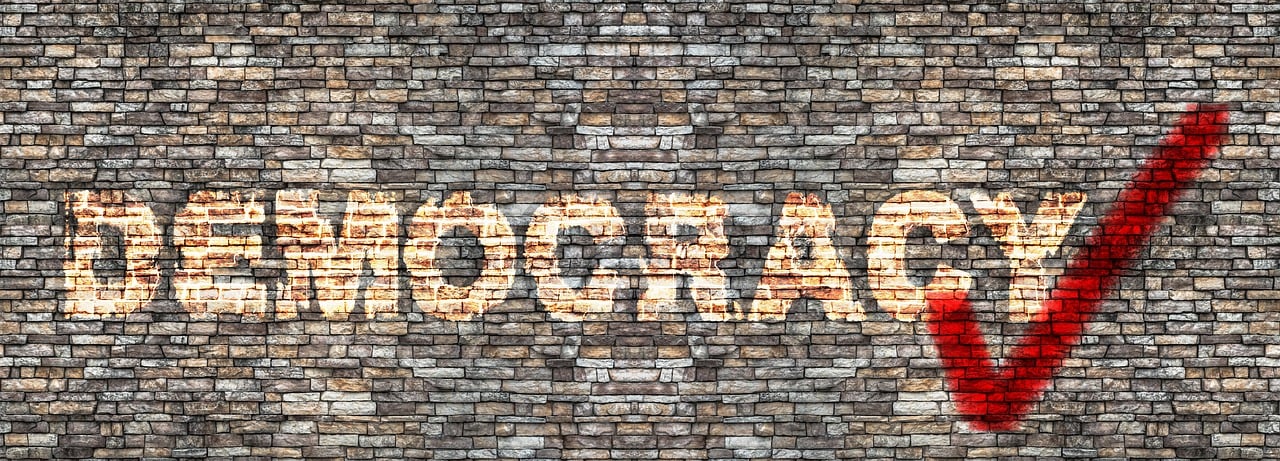Democratic Elections in an Autocratic World
Democratic Elections in an Autocratic World

The big news headline in this year's newspapers could be: "4 billion voters called to the polls in 2024". Although a simple, perhaps incomprehensible, interpretation of the fact could be summarised as follows: "In the midst of the growing process of international democratic deterioration, 4,000 million citizens are called to the polls in 2024". It would seem that the information opens the door of hope only for the interpretation to slam it shut, as if in a few seconds history would realise that democracy does not depend exclusively on an amorphous number of votes but on the legitimacy of the processes and freedoms of citizens to exercise their right to freely choose their representatives.
A disinformative vision of international political reality has for months (years) equated electoral processes in countries such as Turkey, Indonesia or Brazil with those that will take place in Syria, Pakistan or Gaza; and those that will take place in the United States, the European Union or Spain: in the Basque Country and Catalonia, with the one that has given Putin victory in the Russian presidential elections with 88% of the vote. A disorienting and perverse vision that weakens liberal democracy, globalising the idea that participating in an electoral consultation without legal or procedural guarantees is the same as developing the right to vote in systems conceived on the basis of historical experience of respect for the rule of law and free expression. The 2024 election festival is not a celebration of democracy, but a demagogic carnival where masks are exchanged in a marketplace of populist ideas and autocratic leaders.
Although analyses of the global political landscape are too complex to establish some simple and adventurous hypotheses, one could argue that the leaderships of the first decades of the 21st century have been determined by two dominant trends. The first is that the transition towards an order of "power politics" has favoured the consolidation of great powers and consequently strong leaders who have taken control of the political and economic mechanisms to renew their power. Putin (Russia), Xi Jinping (China), Modi (India), Abe (Japan), Merkel (Germany), Erdogan (Turkey), Macron (France), Lula (Brazil), Trudeau (Canada), Obama-Biden (United States). The second is that the growing connectivity brought about by digital social communication networks has led to different phenomena of political disruption, polarisation and instability that have resulted in the construction of new leaderships. Trump (United States), López Obrador (Mexico), Bolsonaro (Brazil), Syriza (Greece), Podemos (left)/Ciudadanos (liberal) (Spain), Far Right (Europe), Milei (Argentina).
But even though both tendencies are recognisable, they should not be identified as phenomena consubstantial to our times, if they were not evaluated in comparative terms with other previous leaderships. For example, with the leaderships of the last third of the last century, where some of the main leaders of the most decisive countries in international politics were in one way or another identified with the dominant democratic or autocratic establishment. Reagan-Bush-Clinton (United States), Gorbachev (USSR), Kohl (Germany), Thatcher-Blair (UK), Mitterrand-Chirac (France), González-Aznar (Spain), Beguin-Rabin-Arafat (Israel/Palestine), Communist Party (China) and various tyrannies at the end of the century.
In 2024 democracy enters a decisive phase of consolidation or deterioration. Democratic consolidation in Europe, America, the Asian democracies and the Mediterranean region depends on the legitimacy of the processes and the convergence of the main political groups around a strategy of institutional strengthening and shared values. Deterioration is about equating different illiberal systems and illegitimate processes, as part of a strategy of recognising non-democratic governments and leaders, with leaderships and projects based on the advancement of individual freedoms and respect for human rights.
In the year 2024, Europe and the Mediterranean will become the backbone of international coexistence and stability. Trade and the implementation of energy, economic, environmental and social projects cannot be limited to the demand for guarantees or democratic clauses that are unworkable in all countries equally. But competition between countries and powers with different levels of political and institutional development cannot mean a regression of liberal democracies, perverted by the influence of radical movements and populisms that act outside the limits set by law and constitutions.
In a year of political consultations with citizens in different countries, liberal democracy has to face a new competition between political systems. Some are based on respect for differences, legitimacy of power and free expression. Others are not.
